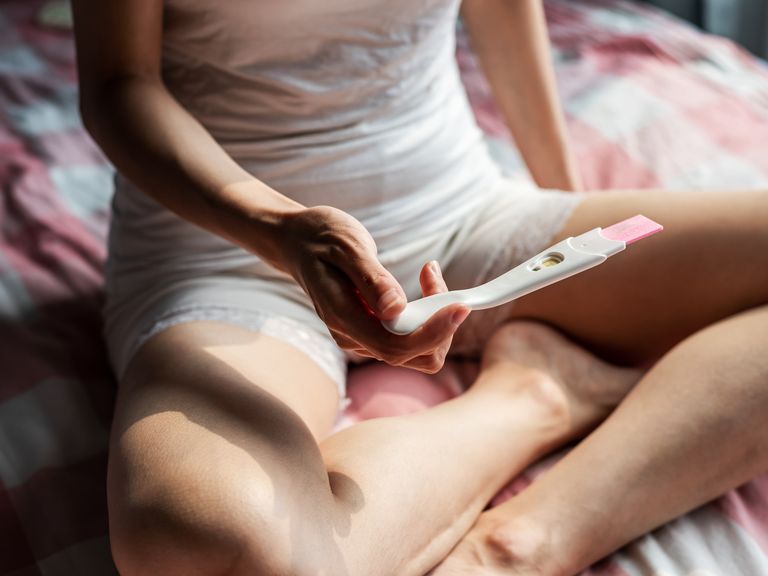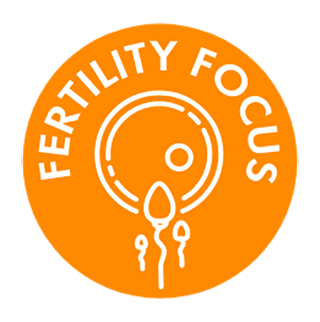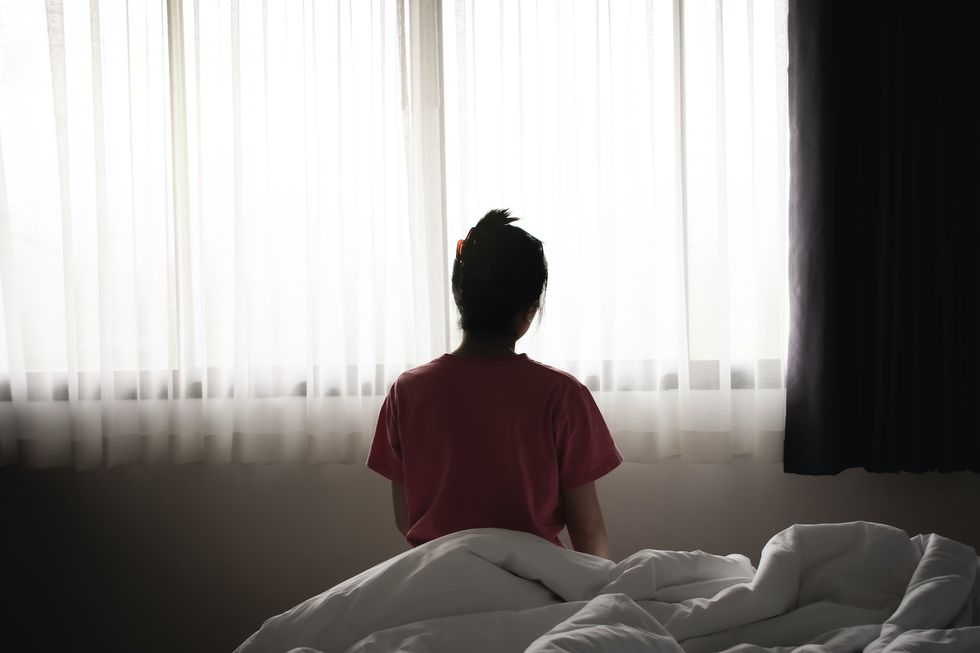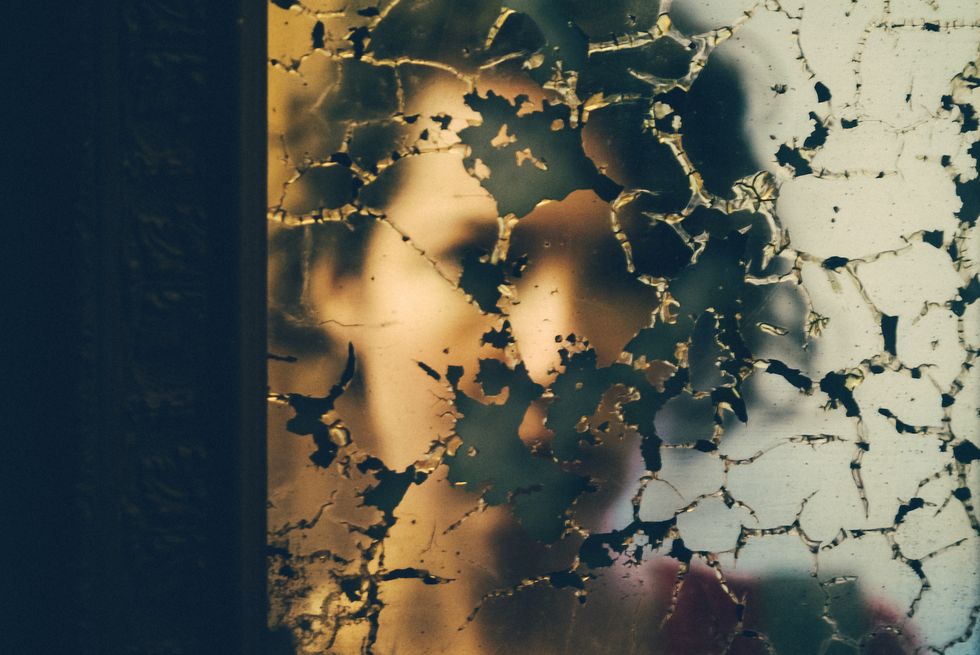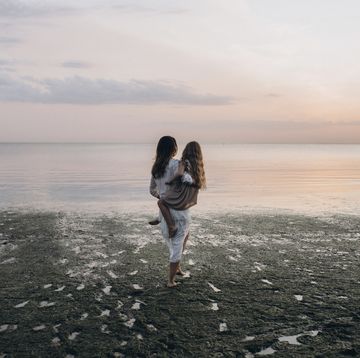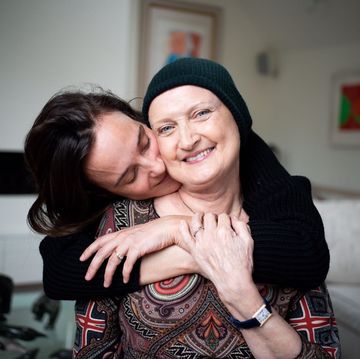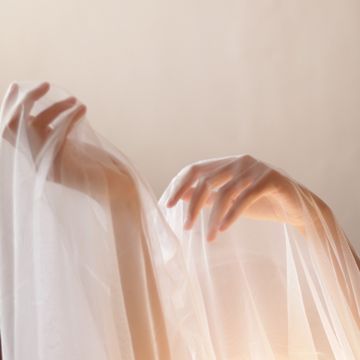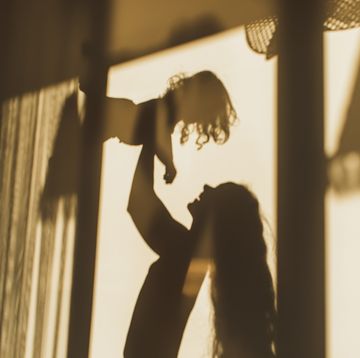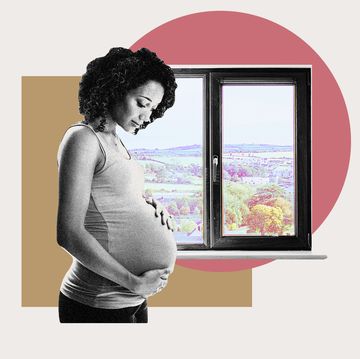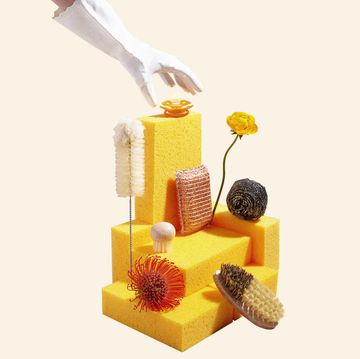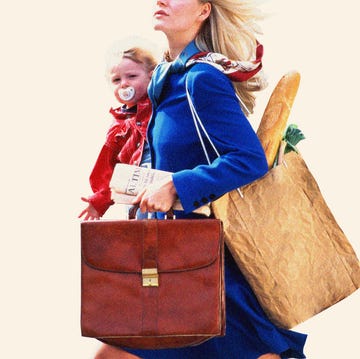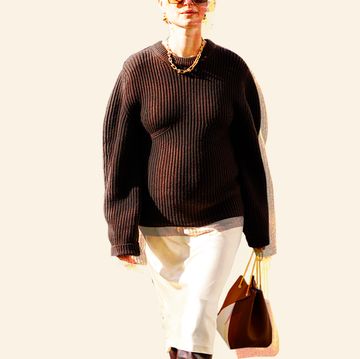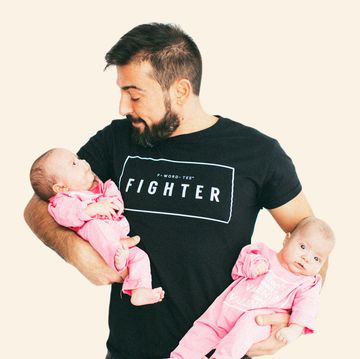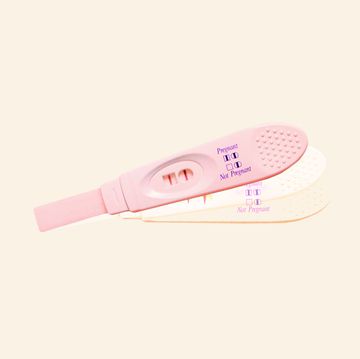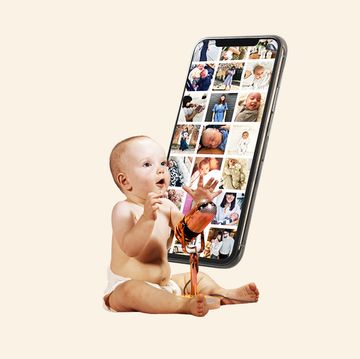Fertility Focus - ELLE explores the myriad experiences of fertility, from surrogacy and miscarriage to hyperfertility and baby loss
I never thought I’d have to repeat the experience of losing a child after the first time. The shock, the grief, the pain. The medication induces contractions, and though my body is not having to contort itself to push out a baby, the rippling waves of agony, stabbing aches and sweats are still all there.
We're deep into the first Covid-19 lockdown and I'm experiencing a medically-induced abortion following a missed miscarriage. My husband is on a work call so my mother - who I haven’t seen or touched in months – has come over to our house, illicitly, to sit with me while I groan and cry, alternating between sitting on the toilet and in the bathtub.
It soon becomes clear that we were unprepared and ill-informed about how serious this process would be. My husband cancels his call, and both of them crouch by the tub, hands laid on my shoulders and stomach, my husband lifting me when my legs give way. I have Codeine, but it doesn’t touch the sides.
It takes hours, but my body knows when they’re coming. I climb into the bath once more and in a push - a rush - they come out in their translucent sack. I scoop them up and feel, inexplicably, triumphant. Here they are - two tiny, stark white bodies, like far-off stars floating in their own tiny universe. Minute. Perfect. Our twins.
The love I felt in that moment is what hurt the most.
This was my first wanted pregnancy. But I’d seen two lines on a pregnancy test several times over the years. This isn’t a piece about miscarriages, but hyperfertility. Unfortunately, the two often come hand-in-hand. The first time I’d heard about hyperfertility was in September 2020 when, after two further miscarriages, I’d been referred to an expert in recurrent miscarriage, Ingrid Granne. During our consultation we discussed my history of fertility and the extraordinary number of pregnancies I’d experienced and lost. ‘I think you might have an unfussy womb,’ she told me. I almost laughed at the ridiculous phrase. But it’s a real thing, rare – so rare that the statistics vary hugely, but some studies suggest between 1-3% of women have it – and much understudied.
Women with hyperfertility often begin their periods early, have very regular cycles (you could set a clock by mine), and fall pregnant easily. Too easily. My womb is, quite literally, unfussy (it has since been described as 'pillowy', which did make me laugh aloud). It will implant embryos other women’s bodies would 'know' to reject.
You know those pregnancy scares you and your friends had, crouched in the school toilets clutching the wildly expensive pregnancy test you’d giggled over in Boots, passing the pack between you like a hot potato? Well, I was that friend who got pregnant. Twice with my first love in my late teens, and twice with my second, who later became my husband.
It wasn’t like I wasn’t careful. I took the Pill and used condoms. But anytime I was sick or my partner and I forgot to use contraception, I got pregnant. I've lost count of the number of times partners have questioned if I was telling the truth. I had one abortion in my early twenties, but during the other pregnancies I've bled out within a couple of weeks, before I had even decided what I wanted to do.
So when after 11 years together, and like many couples in the first lockdown, my husband and I decided to try for a baby, I knew I would get pregnant. And sure enough, first time around, those two lines appeared on the pregnancy test. We wanted our baby so much, the joy was indescribable. My best friend became pregnant two weeks later. I was so excited we were going to experience this miraculous transformative experience together.
Seven weeks into the pregnancy I experienced some spotting so I visited the hospital to undergo a scan. My husband waited for me in the car park due to Covid-19 restrictions while I lay on a hospital bed alone without anyone's hand to hold. And there they were: two hummingbird heartbeats. Twins. I was giddy with delight.
Two weeks later, we paid for a private scan so my husband could see our babies too. But there was nothing to see. I was informed I'd had a missed miscarriage, my body unable to let them go despite the fact they hadn't been alive for days. I felt, as many women do, that I’d failed. A million questions ran through my mind: How had I not known our babies had died? What had I done wrong? How would we ever survive the pain?
But of course, we did. I've never thought of myself as resilient, but I do now. I became pregnant again twice before the year was out, but lost both embryos within a week of the positive pregnancy tests. This is when I met Ingrid Granne, who told me that the only thing I could do was to keep trying.
So we did. Seven months after we lost our twins, we got pregnant a fourth time. We held our breath as the five-week mark passed, then the sixth. We were sure the world couldn’t be so cruel as to take another possibility of parenthood from us, but of course that isn’t how life works. I began experiencing intense pain in the seventh week of my first trimester, and after a visit to the Early Pregnancy Assessment Unit (EPAU) we learnt that it was an ectopic pregnancy. The embryo was lodged in my right fallopian tube, a life-threatening condition. I was told not to wait for an ambulance, and was sent straight to hospital.
Still in lockdown, my husband was forced to wait in the car park for hours while I underwent emergency surgery to remove the fallopian tube and the pregnancy. Prior to the surgery, I asked Ingrid whether the ectopic pregnancy was related to my hyperfertility. She told me it wasn't, it was just bad luck. The recovery period took a very long time. We were staying at my parents’ house at the time while waiting to complete our house sale, and I was lost to anger. I hated everyone, and most of all myself. Immobilised while my incisions healed, there was nothing to do but stew. This was when my husband and I reached out to the baby loss counselling charity Petals. We've visited our brilliant therapist every month since.
Since Ingrid’s hyperfertility diagnosis my partner and I have undergone several fertility tests, checking for everything from Natural Killer Cells to Antiphospholipid syndrome (APS). There’s nothing ‘wrong’ with either of us: no low egg or sperm count, and aside from my 'accommodating' womb and missing tube, we have healthy reproductive systems. Luckily Ingrid is one of two doctors in the UK who studies hyperfertility, and she's put me on an anti-inflammatory drug trial (or not, I may have been on a placebo) to see if it impacts my ability to reject unviable embryos. If nothing else, I'm contributing much-needed data to medical research, and that feels meaningful after two years of feeling helpless.
I'm often asked how my husband and I hold hope after so much loss. It's with the support of our loved ones, the expertise of the NHS, and the luck of having each other. We've now had five miscarriages and one ectopic in the space of two years. I’m 32 years old and relatively young in my fertility 'journey', but how much heart I have left for the possibility of more loss is another matter. I love my life, my relationship, my job, and have many children in my family and friendship circles. A childfree existence is a possibility for us – we won’t continue trying at any cost.
Here are the things my husband and I hold onto:
It has been bad luck, but luck can change.
We have a love for each other that is more than enough, if a child doesn’t come.
We have careers that allow us to explore our grief and make art from it, enabling us to process some of our darkest thoughts.
The medical trial may lead to some advances in the care of other women with hyper fertility.
From the first moment I saw our twins' heartbeats, I was a parent. And that love will stay inside me, whatever comes.
The Dance Tree by Kiran Millwood Hargrave is out now in hardback for £14.99.
